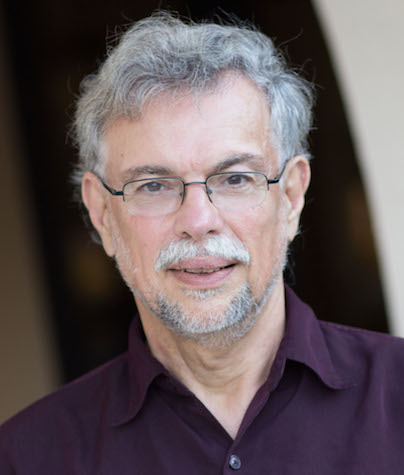One of the great benefits of Your Right Livelihood: A Training in Doing the Work, Art, and Service You Love is the face-to-face weekly opportunities to talk with luminary writers, teachers, and change-makers about what’s calling to you in your work, art, and life. The training, which launches Sept. 25 and ends in mid-December, led by Caryn Mirriam-Goldberg and Laura Packer, helps people both navigate their callings and their livelihoods (read an interview with Laura and Caryn to learn more).
In addition to the two-day opening retreat — to be held Sept. 25-27 at the Casa Franciscan Renewal Center in Scottsdale, Arizona (where the Power of Words conerence starts shortly after our retreat ends), the weekly video-conference live meetings with guest teachers helps us get to know each other voice to voice and face to face, and it gives participants the chance to ask our guest teachers questions and discuss many dimensions of making our life’s work come true. The training also includes a 10-week online class, one-on-one coaching with Laura and Caryn, and lots of extra supports and resources.
This year’s crop of guest teachers includes:
- Dr. Harriet Lerner, one of our nation’s most respected voices in the psychology of women, and the “how-tos” of navigating the swamps and quicksands of difficult relationships. She lectures and consults nationally, and is the author of numerous scholarly articles and 12 books including The Dance of Anger, which has sold more than three million copies with over 30 foreign translations, and her recent book, Why Won’t You Apologize? Healing Big Betrayals and Everyday Hurt.
- Gregg Levoy, author of Callings: Finding and Following An Authentic Life and Vital Signs: Discovering and Sustaining Your Passion for Life, writes for, consults with, and speaks to thousands of people regularly on finding and following your life’s work and passions. See a SPARKS session, hosted by the TLA Network, featuring Gregg Levoy talking about callings and right livelihood.
- Donna Washington a professional author, storyteller and multicultural folklorist who has been sharing stories for over thirty years. She has been
 featured at numerous festivals, schools & libraries theaters and other venues around the world, and she has released nine CDs and four children’s books. She offers a range of multicultural folktales, personal narratives and stories of her own creation.
featured at numerous festivals, schools & libraries theaters and other venues around the world, and she has released nine CDs and four children’s books. She offers a range of multicultural folktales, personal narratives and stories of her own creation. - Doug Lipman is a renowned storyteller, storytelling mentor and teacher, and innovator. Doug loves to help artists and other self-employed professionals become comfortable (and effective) in marketing their own work. He says, “We tend to view marketing as something pushy and dishonest – which much marketing sadly is. But true marketing consists of discovering who is hungry for what you love to do—and letting them know you’re available to do it.
- Kim Go is an interfaith minister, former minister of congregational life, public speaker, coach, author, ritual celebrant and expressive facilitator. A focus of her work is the project, Alive and Mortal, an online group to address grief and impermanence. She says, “We work togetherto learn expressiveness around grief and find our voice. This aids us to use the power of the group to move out into the world to speak of our grief and love story that we carry with an expanded language.
- José Faus is an artist, writer, teacher, and ment
 or. A native of Bogota, Colombia and long time Kansas City resident, he has participated in mural projects throughout the Kansas City area, Mexico and SantaCruz de la Sierra, Bolivia where he traveled under a State Department grant. He is a founder of the Latino Writers Collective and sits on the boards of the Writers Place, UMKC Friends of the Library, The Latino WritersCollective and the Charlotte Street foundation.
or. A native of Bogota, Colombia and long time Kansas City resident, he has participated in mural projects throughout the Kansas City area, Mexico and SantaCruz de la Sierra, Bolivia where he traveled under a State Department grant. He is a founder of the Latino Writers Collective and sits on the boards of the Writers Place, UMKC Friends of the Library, The Latino WritersCollective and the Charlotte Street foundation. - Rob Peck, is an author, humorist and recovering perfectionist! True to the title of his new book, It’s a Juggle Out There, Rob’s moving speeches and uplifting seminars focuses on three things simultaneously: Stress management, Streamlining, & Simplifying.
- Heather Forest is a modern-day bard fusing poetry, prose, original melody, and the sung and spoken word. A pioneer in the American storytelli
 ng revival she has shared her repertoire of world tales in theaters, schools, literature conferences, and storytelling festivals throughout the United States and abroad. A multiple award-winning author and recording artist, she has published seven children’s picture books based on folktales, three folktale anthologies, eight audio recordings of storytelling and a popular educational web site StoryArts Online.
ng revival she has shared her repertoire of world tales in theaters, schools, literature conferences, and storytelling festivals throughout the United States and abroad. A multiple award-winning author and recording artist, she has published seven children’s picture books based on folktales, three folktale anthologies, eight audio recordings of storytelling and a popular educational web site StoryArts Online.
Find out more about the training here. You can also schedule a discovery call with Laura or Caryn to talk about the training and your life by going here.

